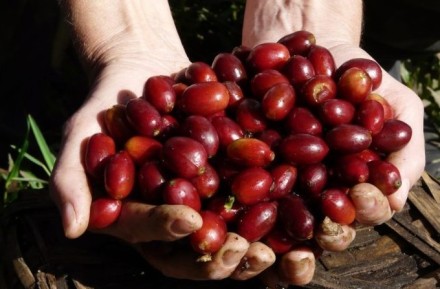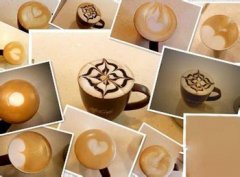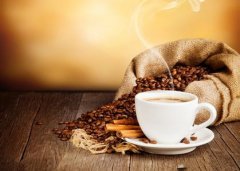The role of caffeine caffeine can stimulate creative inspiration
Many talented artists in history have amazing coffee drinking habits. Balzac is said to drink 20 cups of coffee a day and Voltaire has more than 40 cups of coffee. What exactly does coffee or caffeine have to do with their immortal works?

Studies have shown that consuming too much caffeine may be more likely to cause hallucinations. And hallucinations are part of creativity to some extent. People with high caffeine intake refer to those who consume the equivalent of seven cups of instant coffee a day. Compared with "decaffeinated people" who consumed less than one cup of coffee a day, they were three times more likely to hallucinate.
The study, jointly funded by the Economic and Social Research Council and the Medical Research Council, asked hundreds of artists the usual amount of caffeinated products consumed, such as coffee, tea, energy drinks, chocolate bars and caffeine tablets. Their tendency to hallucinate and their stress levels were also assessed. Some participants said they saw things that were not stored, hallucinated or felt supernatural.
The researchers believe that caffeine can aggravate the physiological effects of mental stress. When a person suffers from mental stress, the body secretes a hormone called cortisol. This hormone is secreted more soon after caffeine intake. Scientists believe that it is the extra cortisol produced by caffeine that increases the chances of hallucinations.
The study further shows a link between hallucination and caffeine intake in artists. But it can also be explained that artists who are more prone to hallucinations are using caffeine to deal with hallucinations. More research is needed to determine whether caffeine or organized nutritional intake affects these stress hallucinations. "
Tips:
Hallucination doesn't mean you have mental illness. Most people have a brief experience of hearing a voice when no one is there, and about 3% of people hear it regularly. Many people cope well and lead a normal life. It even promotes artistic creation.
Important Notice :
前街咖啡 FrontStreet Coffee has moved to new addredd:
FrontStreet Coffee Address: 315,Donghua East Road,GuangZhou
Tel:020 38364473
- Prev

Ten Secrets of Fine Coffee
1. Caffeine will kill you, but you have to drink 80-100 cups in a row to kill you, and health experts warn us not to try. Coffee is good for your health A study shows that Americans get most of their daily antioxidants from the coffee they drink every day. One or two cups of coffee a day is very beneficial. If you
- Next

How do people with bad stomachs drink coffee without causing stomachache?
I believe that people who often have stomachache have an experience, that is, doctors will tell them not to eat irritating foods, including wine, chili, coffee, tea, carbonated drinks. Coffee is among them because tannic acid stimulates gastric acid secretion and aggravates damage to gastric mucosa. If it is an acute stage of digestive disease, patients must avoid it. After recovery, if
Related
- Beginners will see the "Coffee pull flower" guide!
- What is the difference between ice blog purified milk and ordinary milk coffee?
- Why is the Philippines the largest producer of crops in Liberia?
- For coffee extraction, should the fine powder be retained?
- How does extracted espresso fill pressed powder? How much strength does it take to press the powder?
- How to make jasmine cold extract coffee? Is the jasmine + latte good?
- Will this little toy really make the coffee taste better? How does Lily Drip affect coffee extraction?
- Will the action of slapping the filter cup also affect coffee extraction?
- What's the difference between powder-to-water ratio and powder-to-liquid ratio?
- What is the Ethiopian local species? What does it have to do with Heirloom native species?

